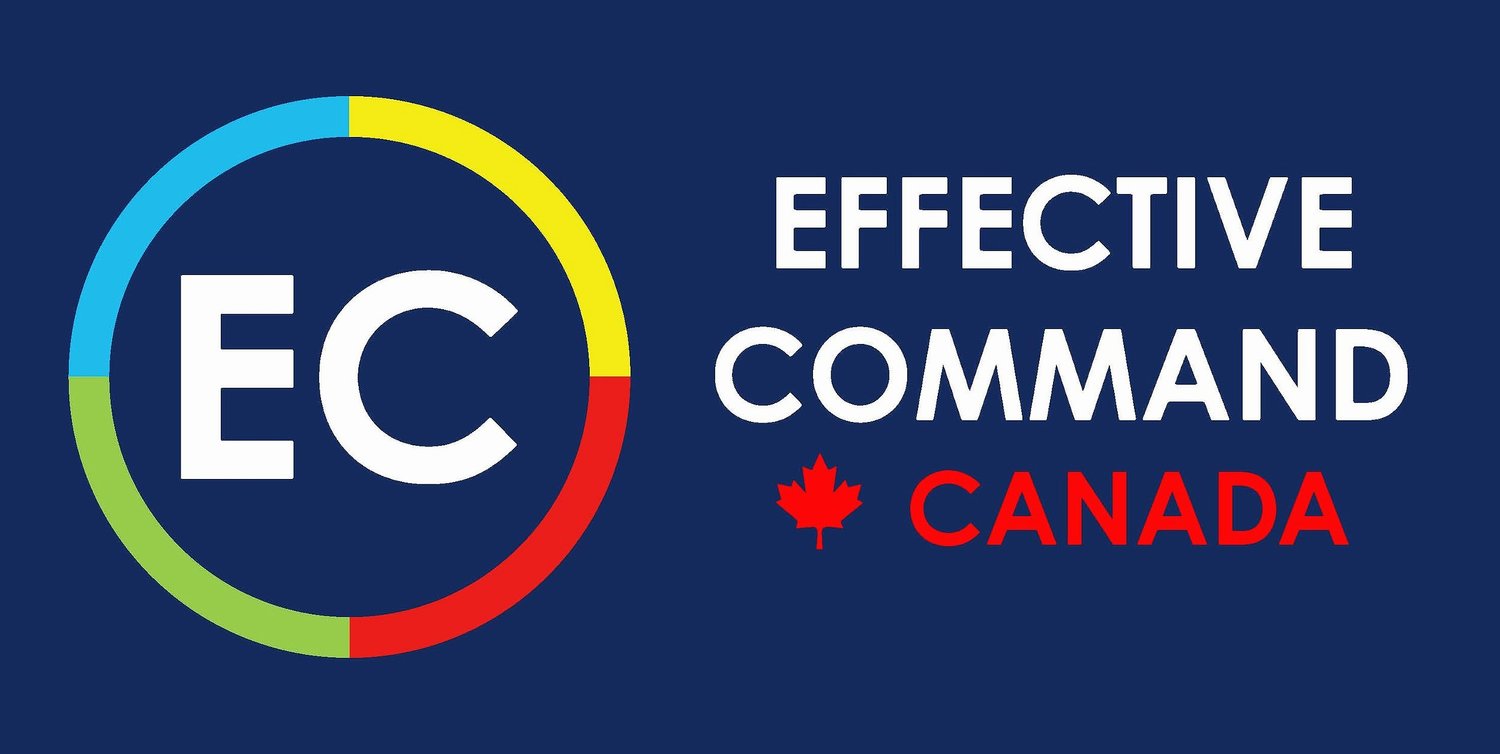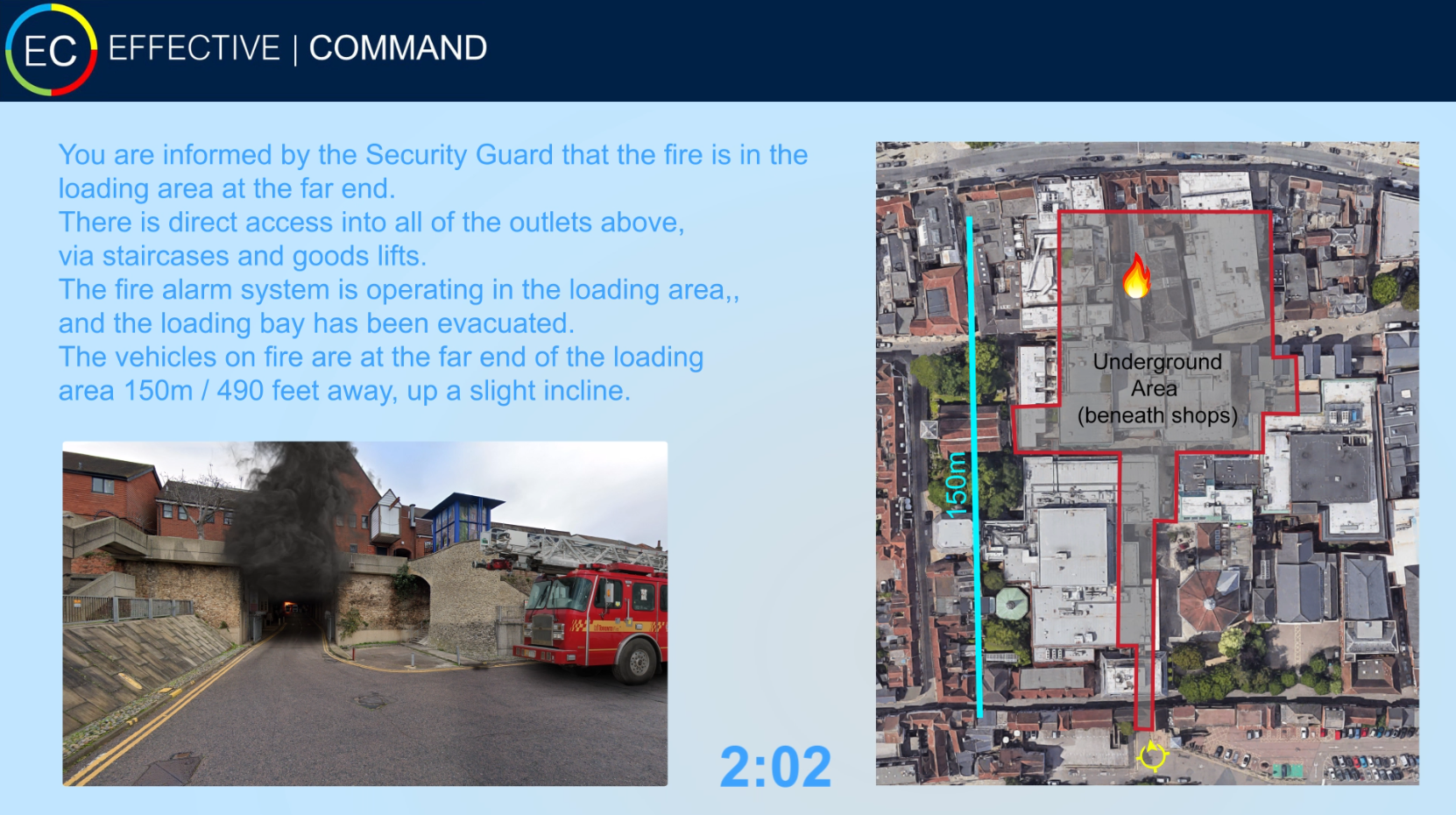Applications of Effective Command™
Training & Evaluation
The assessor records competence in all 5 incident phases - Situational Awareness, Decision-making, Objective setting, Action behaviours and Review in the assessment tool. Each of the assessment criteria is scored out of 5, with 3/5 deemed safe and satisfactory, enabling both poor and exceptional performance to be accurately recorded, and an organisational competence profile to be established. A comments box is also provided to record the assessor feedback to the student.
The Effective Command™ tool collates Incident Commander competence data using 3 different applications: Training, Operational Assurance and Formal Assessment and has multiple applications:
Initial officer training - using the Training Portal Videos
Maintenance officer training - using the Training Portal Videos and Assessment tools
Collection of competence data for trend analysis - Review Organisational competence
Assessment scenario use for promotional processes - Readily deliver credible and immersive Simulations
Training
The Training Portal can be used by individuals or groups to build or maintain command competencies. The training is recorded on the website using the marking sheet with both individuals or training officers able to log the session into the organisational dashboard.
The Training Portal contains a library of scenario videos which can be used for self study or instructor led sessions. They present an incident to the students embedded within a video from dispatch to transfer of command. The scenario allows the student to explore risk assessment, resourcing, tactics, comms and command through questions asked and situations presented.
The scenarios are diverse from fires to chemical incidents, rescues to wildfires, floodings to terrorist incidents. With 12 scenarios are added to this training scenario library every month
This recommended Effective Command training cycle, incorporates both self-led and instructor led training using the Training portal to build competence and confidence.
The Incident Command skills of individuals are assessed with the student receiving quality feedback from a qualified assessor.
The competencies are then recorded in the assessment matrix, the data generated is analysed, and the organizational intelligence informing subsequent training cycles.
Formal Assessments
Assessors who have completed the Effective Command instructor program can record incident command competence within the system as Formal Assessment. These assessments can be conducted periodically to document officers capability or can be included as part of a promotional process. The data generated can be used to understand and evidence organisational competence.
Assessors were re-validated annually.
The assessment tool can be used to record competence of practical drills at station or drill ground, or during the use simulated scenarios using VR software or the Assessment Portal.
Subscription Costs
Access to the Effective Command tool kit requires an organisational subscription, and there are several affordable options.
Training Officer Only
Access to Training Scenario Library
2 x Training Officer logins
$450 CDN – annual subscription
Training Officer PLUS Full Organizational Access
Individual login for each officer
$450 CDN + $50 CDN for each additional user – annual subscription
Training & Assessment
Individual login for each officer
$450 CDN + $50 CDN for each additional user – annual subscription
5-day Instructor courses $2,000 CDN per student (run in conjunction with OAFC)
Instructor access to a library of dedicated assessment scenario & scripts for skill evaluation or promotional assessment
Annual instructor standardization & recertification $500 CDN
The Effective Command™ Behavioural Marker Framework
Effective Command™ is a series of training and assessment tools, developed for the International Fire Service domain. They are aligned to National and International occupational frameworks and endorsed by awarding bodies and academic institutions.
Effective Command™ was created as a behavioural marker framework in 2015 by two academic/fire service practitioners (UK and Australia), to address the disconnect between academic research and its application within the Fire Service. The aim was to develop a robust strategy to implement non-technical skills during Fire-officer training. It focuses on five key behaviours: Situational Awareness, Decision-making, Objective setting, Action behaviours and Review.









